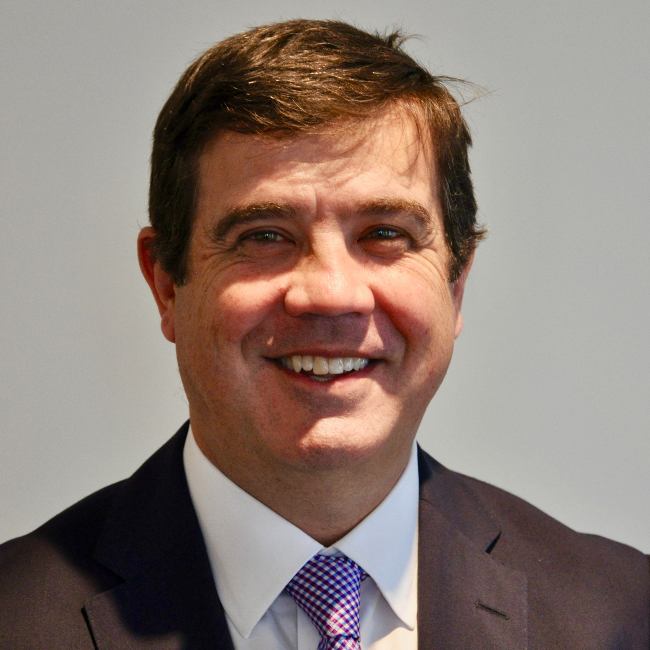MEDICAL CONDITIONS
Dr Richard Kennedy – MBBS (Melb.), FRACS.
Ear, nose and throat, head and neck surgeon.
Ear, nose and throat conditions.
Dr Kennedy sees adults & children for consults.
DIAGNOSIS OF EAR, NOSE, THROAT, HEAD & NECK CONDITIONS

“My aim is to ensure you fully understand your diagnosis and treatment options. Under my care, you will always be treated in a compassionate, understanding and professional manner.
If you have any questions about the diagnosis or surgical procedures below please contact my rooms.
I’ll be happy to answer any of your questions – Call (03) 9495 6900.”
Dr Richard Kennedy – MBBS (Melb), FRACS.
Ear, nose and throat, head and neck surgeon.
Find out more about Dr Kennedy’s services:
EAR CONDITIONS
People of all ages may experience ear infections, dizziness or gradual hearing loss. These symptoms are often due to natural ageing or long exposure to loud noise, viruses, bacteria, heart conditions, head injuries, tumours and certain medications. The treatment for hearing loss will depend on your symptoms and diagnosis.
Dr Kennedy regularly diagnoses and treats patients with:
Ear Infections and Glue Ear
Glue ear (also known as known as adhesive otitis) is a condition that occurs when the middle part of your ear fills with fluid. The fluid can become thick and sticky, like glue and may to lead to a middle ear infection and if left untreated, hearing difficulties.
Ruptured Eardrum
A ruptured eardrum (also known as Tympanic Membrane Perforations) is a hole or tear in the thin tissue that separates your ear canal from your middle ear (eardrum) and may result in hearing loss. It can also make your middle ear vulnerable to infections.
Acoustic Neuroma
An acoustic neuroma is a benign (non-cancerous), slow-growing tumour that originates in the canal that connects the brain to the inner ear via the vestibular nerve.
Branches of the vestibular nerve directly influence your balance and hearing, and pressure from an acoustic neuroma may cause hearing loss, ringing in your ear and unsteadiness.
Prominent Ears
Ears that stick out more than 2 cm from the side of the head are considered to be prominent or protruding. In most cases people with protruding ears also have an underdeveloped antihelical fold that causes the ear to stick out and a deep concha, which is the bowl-shaped space just outside the opening of the ear canal.
One or both of these ear formations, may push the entire ear away from the side of the head. Protruding ears don’t cause any functional problems such as hearing loss.
Otosclerosis
Otosclerosis is a form of abnormal bone growth within the middle ear that causes progressive hearing loss. The middle ear is the area behind the ear drum and it contains tiny bones that amplify sound waves.
Otosclerosis stops these tiny bones from vibrating in the ear causing hearing loss because the sound waves can’t reach the inner ear.
Dizziness
Dizziness has many possible causes, including inner ear disturbance, motion sickness and medication effects. Sometimes it’s caused by an underlying health condition, such as poor circulation, infection or injury.
With inner ear disorders, your brain receives signals from the inner ear that aren’t consistent with what your eyes and sensory nerves are receiving which may result in dizziness and balance issues.
Tinnitus
Tinnitus is experienced as noises or ringing in a person’s ears or head, when no such external physical noise is present. Tinnitus is a symptom of a fault in a person’s hearing system, which includes the ears and the brain.
Common causes of tinnitus include, exposure to loud sounds, extreme stress or trauma, degeneration of the hair cells in the cochlea, otosclerosis (abnormal bone growth in the middle ear), Meniere’s disease (swelling of a duct in the ear) and some medications.
Cholesteatoma
A cholesteatoma is an abnormal, noncancerous skin growth that can develop in the middle section of your ear, behind the eardrum. It may be a birth defect, but it’s most commonly caused by repeated middle ear infections.
Hearing and Audiology Tests
Dr Kennedy may advise that patients undertake a comprehensive range of hearing tests to check an individual’s response to sound tones and the ability to discriminate speech at different volumes.
Surfers Ear
Surfer’s ear is a condition where the bone of the ear canal develops multiple bony growths called exostoses. The bony growths can trap water and other particles leaving you prone to ear infections and may eventually cause a partial or complete blockage of the ear canal affecting your hearing.

“Most ear conditions present with multiple symptoms that may require further tests to help formulate an accurate diagnosis. The management of the condition/s may be treated medically or surgically depending on your diagnosis.
I will ensure you understand the information in relation to your condition and your treatment options.
If you have any questions, please contact my rooms – Call (03) 9495 6900.“
Dr Richard Kennedy – MBBS (Melb), FRACS.
Ear, nose and throat, head and neck surgeon.
NOSE CONDITIONS
Nasal disorders may be caused by a fracture, hay fever, sinus infection, nasal polyps, septal deviation or a turbinate enlargement.
Dr Kennedy frequently consults with patients that present with:
Nasal Obstruction
A nasal obstruction refers to a blockage of the nose or nasal cavity and can be caused by a variety of issues including but not limited to allergies, swelling, trauma, foreign bodies or a birth condition.
Nasal Deformity
A nasal deformity is an abnormality in the nose structure or appearance that may result in breathing difficulties, impaired sense of smell or other concerns.
Nasal Polyps
Nasal polyps are soft, painless, noncancerous growths on the lining of your nasal passages or sinuses.
Groups of polyps or larger polyps can block your nasal passages and cause breathing problems. They may also cause a loss of sense of smell and infections.
Sinusitis
Sinusitis is an infection or inflammation of the sinuses. The sinuses are air-filled spaces within the bones of the face located in the cheeks, forehead and around the eyes.
Sinusitis is caused by too much mucus, or a swelling of the lining of the sinuses and nose, which can block the narrow channels. Bacteria (germs) then grow inside the sinuses, causing pain, headache and fever.


“Most nose conditions present with multiple symptoms that may require further tests to help formulate an accurate diagnosis. The management of the condition/s may be treated medically or surgically depending on your diagnosis.
I will ensure you understand the information in relation to your condition and your treatment options.
If you have any questions, please contact my rooms – Call (03) 9495 6900.“
Dr Richard Kennedy – MBBS (Melb), FRACS.
Ear, nose and throat, head and neck surgeon.
THROAT CONDITIONS
Throat disorders may lead to difficulty swallowing, continued hoarseness, or loss of voice.
Dr Kennedy regularly sees patients who present with:
Snoring and Sleep Apnoea
Snoring – Snoring occurs when the tissues in your throat relax. When you breathe, the relaxed tissues vibrate making a loud noise. Regular snoring partially blocks your airway but does not cause any significant breathing problems.
Sleep Apnoea – Sleep apnoea snoring is the result of a partial or full obstruction of the airway that can severely restrict or stop your breathing, starving your body of oxygen.
Swallowing Problems
Difficulty swallowing is usually a sign of a problem with your throat or oesophagus – the muscular tube that moves food and liquids from the back of your mouth to your stomach.
Problems swallowing occur due to the muscles and nerves that help move food through the throat and oesophagus are not working correctly. This may be caused by nerve problems, swelling, blockages or tumours.
Hoarse Voice
When hoarse, the voice may sound breathy, raspy, strained, or there may be changes in volume or pitch.
Common causes of a hoarse voice may include a cold or infection, smoking, allergies, reflux, thyroid problems, neurological disorders, rheumatoid arthritis and trauma to the voice box.
Tonsillitis
Your tonsils are the two small pads of glandular (lymphatic) tissue located each side of the back of your throat. They are part of your immune system and make antibodies and white blood cells (lymphocytes) to attack germs inside your mouth.
Tonsillitis occurs when your tonsils become infected by either bacteria or viruses causing swelling and fever.




“Most throat conditions present with multiple symptoms that may require further tests to help formulate an accurate diagnosis. The management of the condition/s may be treated medically or surgically depending on your diagnosis.
I will ensure you understand the information in relation to your condition and your treatment options.
If you have any questions, please contact my rooms – Call (03) 9495 6900.“
Dr Richard Kennedy – MBBS (Melb), FRACS.
Ear, nose and throat, head and neck surgeon.
HEAD AND NECK CONDITIONS
Dr Kennedy commonly sees patients in relation to:
Head and Neck Cancer
Head and neck cancer are general term for a range of cancers that start in the tissue or lymph nodes in the head and neck area. This region includes the mouth, tongue, palate, gums, salivary glands, tonsils, throat, voice box, nose and sinuses.
Salivary Gland Tumours
Salivary gland tumours are rare types of tumours that begin in the salivary glands that may be located in the mouth, neck or throat. The most common symptom of a salivary gland cancer is a swelling on the side of the face, just in front of the ear or under the jawbone.
Thyroid Tumours
Thyroid cancer is a type of cancer that starts in the thyroid gland (found inside the lower front of your neck). The thyroid gland makes hormones that help regulate your metabolism, heart rate, blood pressure, and body temperature.
The type of thyroid cancer you have determines treatment and prognosis.




“Most head or neck conditions present with multiple symptoms that may require further tests to help formulate an accurate diagnosis. The management of the condition/s may be treated medically or surgically depending on your diagnosis.
I will ensure you understand the information in relation to your condition and your treatment options.
If you have any questions, please contact my rooms – Call (03) 9495 6900.“
Dr Richard Kennedy – MBBS (Melb), FRACS.
Ear, nose and throat, head and neck surgeon.
